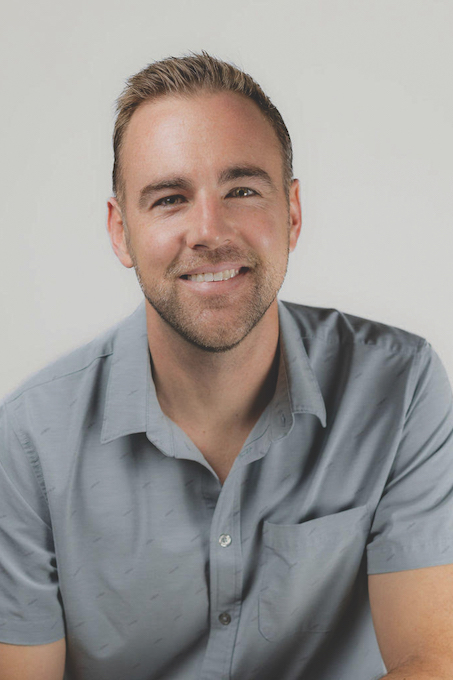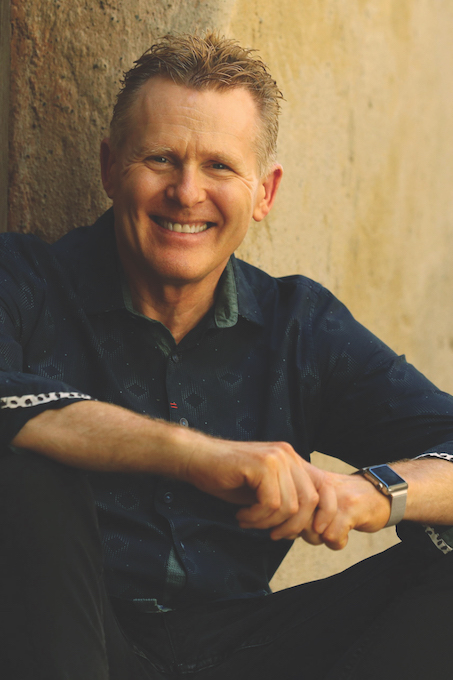
When deadlines, social pressures and responsibilities become overwhelming, consider these tips from local experts to add some calm back into your life.
By Julia Clerk
Despite living in one of the nation’s most laid-back places, with miles of beach and idyllic sunny days, it sometimes seems like everyone in Newport Beach is stressed.
“On the macro level, there is a lot of uncertainty in the world,” says Newport Beach-based clinical psychologist Dr. Mitch Keil. “… The unknown is an optimal stress creator. … On the slightly less macro level, many people are feeling that the stress and effort it now takes to assemble the American dream is immense.”
Keil says another factor in increasing stress is that “over connectivity” is hijacking our dopamine systems—known as the “feel good” hormone—and overwhelming people to the point that we’re almost uncomfortable feeling bored or unproductive.
Local Pressures
Narrowing the focus to a local level, “Adults in Newport Beach are facing immense pressure to provide better, parent better, fitness better, relationship better, career better, everything better,” Keil says. “Keeping up with the Joneses is in full throttle and people struggle to feel good enough about the life they are living.”
He also points to a “unique stressor” that many families face—keeping in touch with their kids when they grow up and venture out on their own, likely having to move where it’s affordable. “Things are just so expensive and Newport Beach home buying has become a winner’s circle for the most financially successful,” Keil says.
Is Stress Really That Bad for Us?
Dr. Robert Puff, a Newport Beach clinical psychologist with more than 30 years of experience, says that stress causes our weakest genetic predispositions to get worn down, resulting in pneumonia, depression and other impacts on our physical and mental health.
“When we’re under high stress, sooner or later, whatever is the weakest point of your physiological and psychological makeup is going to break down,” Puff says.
According to Keil, stress leads to a lot of coping mechanisms that cause collateral damage on our relationships, health or inclination for addictions. He recommends watching the National Geographic documentary “Stress: Portrait of a Killer” with Stanford University biology and neurology professor Robert Sapolsky (available on YouTube) to get a better understanding of stress and why it’s so important to get it under control.

Finding Relief
The Mayo Clinic’s website lists practices people can undertake to relieve stress including meditation, practicing yoga, connecting with others, laughing (even a forced fake laugh), learning to say “no” to some activities and invitations, getting enough sleep, journaling, exploring creative outlets and seeking counseling.
“Physical activity is my No. 1 tip,” Puff says. “Instead of coming home and popping that bottle of wine, go for a walk first. We live in a beautiful place. I really encourage us to go for walks along the beach.”
Puff is also a big proponent of meditating and has written two books on the subject. “I’ve been meditating for almost 40 years,” he says. “It’s really healthy for us [and] gives you time to slow down.”
Another way to relieve stress, he says, is to just pause and be mindful and in the present. “When you’re eating a meal, just eat your meal,” he says. “Don’t think about what you’re going to do next. When you’re driving to work, just drive to work.”
He also says we should aim for holistic success and cautions against being so focused that we’re successful in one area of our life to the detriment of other areas. “There’s nothing wrong with being successful,” he notes, “but in the long run, people who are the most successful are successful overall—not just in one area.”
There’s an App for That
A number of readily available online apps can help with managing stress and mental health.
Transformations Care Network, a national network of mental health providers, recommends The Mindfulness App, Calm, Headspace and Buddhify for meditation, as well as Sleep Well Hypnosis, Pzizz and Relax Melodies for better sleep. To supplement trained professionals in mental health treatment, TCN recommends 7 Cups for daily support and coping mechanisms between visits, while Moodnotes provides an innovative approach to journaling.
Podcasts are another popular means for gathering information on de-stressing and mental well-being. Readily available and largely free, they offer tips and strategies, can help you feel less alone, and reassure that you’re on the right path (or not).
Before taking any advice beyond the most basic, make sure the podcast is produced by a legitimate mental health care provider and is targeted at people like you. Read the reviews, use common sense and don’t follow any tips that seem to be harebrained or unproven.
Some popular stress-related podcasts are “Anxiety Slayer,” “The Anxiety Guy Podcast,” “Black Mental Health Podcast,” “The Stress-Less Life,” “The Calmer You Podcast,” “The Mindful Minute” and “The One You Feed.”
Puff has produced more than 500 episodes of his own show, “The Happiness Podcast.” “I’ve spent my life traveling the world, figuring out what makes people do well in life and my episodes are just very tangible,… like use this and that will help this [or] … doing this will make you happier.”

Seeking Professional Help
If you’ve already tried some of the popular stress-reducing techniques and feel like the needle just isn’t moving, it’s time to ask for help, Keil says.
“Don’t wait for stress to pile up or for burnout to set in before seeking therapy,” he says. “In our experience, people who come in for stress and burnout get better quickly. I imagine these people get back on track much faster than those who try and do it without help.”
Keil believes that by the end of the first session, most patients can gauge if therapy is going to be helpful. And if you believe it will be, you need to hunker down and do the work, being as honest and vulnerable as needed.
In most cases, Keil explains, it will be very clear to both you and your therapist when you’re at “the finish line” and are ready to let go of weekly sessions. “It’s a celebration of both of us,” he adds, “and we love helping people get there.”
Tips to De-Stress
In addition to professional therapy to work on core issues that lead to stress, Dr. Mitch Keil suggests these practical changes that research has shown can help to manage chronic stress.
Practice mindfulness meditation: Before picking up your phone, meditate for 10 to 15 minutes every morning. “Teaching your attention to sit and stay in one place with a daily practice allows you to become more present and less reactive and responsive to thought,” Keil says.
Sleep is critical: People need seven to nine hours per night, and consistency—even on the weekends—is important. “An overwhelming amount of research continues to grow on the incredible role that sleep plays in our health and stress levels,” Keil says.
Create a wind-down routine an hour before bedtime: Research shows that people who read books and meditate before bedtime outperform their sleep-disturbed peers taking prescription medicine, Keil says. He suggests listening to soft music or an audiobook and avoid screens, or use blue light-blocking glasses if screen time is necessary.
Set your bedroom temperature: Data indicates a temperature between 60-67 F is best. “Also, taking a warm shower or bath before bed makes your body respond by dropping its core temperature and thus inducing a key component of sleep,” Keil says.
Eat your last meal of the day two hours before bed: Most sleep experts agree that eating at least two hours before bedtime is important, Keil says. “Eating a lot before bed revs up your metabolic system, causing large fluctuations in glucose, and disturbs your body’s natural melatonin production,” he explains.
Avoid stimulants before bed: No caffeine, alcohol or other stimulants for 10 hours before bedtime. “Caffeine has a half-life of six hours, meaning, half of the caffeine dose is hanging around six hours after your last sip. It can greatly interfere with sleep,” Keil says. “… Alcohol also affects sleep by means of reducing REM sleep.”
Get morning light: Going outside within the first 15 to 30 minutes of waking up helps to set your circadian rhythm and improves your mood, Keil says.
Reclaim play: This could be reading a novel, painting, dancing, playing an instrument, surfing or anything else that feels fun to you. “Play … gives us the essential energy and clarity to engage meaningfully in the others parts of our lives,” Keil says. “… If this need goes unmet for too long, I have seen many well-meaning adults start to soothe in self-destructive ways.”
Physical activity is a must: Research shows that people should engage regularly in zone 2 cardiovascular activity in combination with strength training, Keil says, noting that morning workouts are better than evening gym sessions. “Those who adhere to morning workouts show less cortisol production—stress hormone—during stressful events,” he says.
Allow yourself to get bored: “We can get accustomed to being on the go and forget that we need time for rest,” Keil says. “Kids, too, need this time; they need to experience boredom and develop a friendly relationship with it without needing to fill bored space with screens and activities. Creative acts are born in states of boredom.”
Work on cultivating quality friendships: Relationships give our lives meaning and Keil has heard that making friends has become increasingly difficult in Newport. “People just don’t know where to go to make friends as adults,” he says. “… Connecting with other people over a common interest is a great place to start. … Don’t be afraid to join a club or show up to a Meetup mountain biking group. … Every friend was once a stranger—take a risk.”




